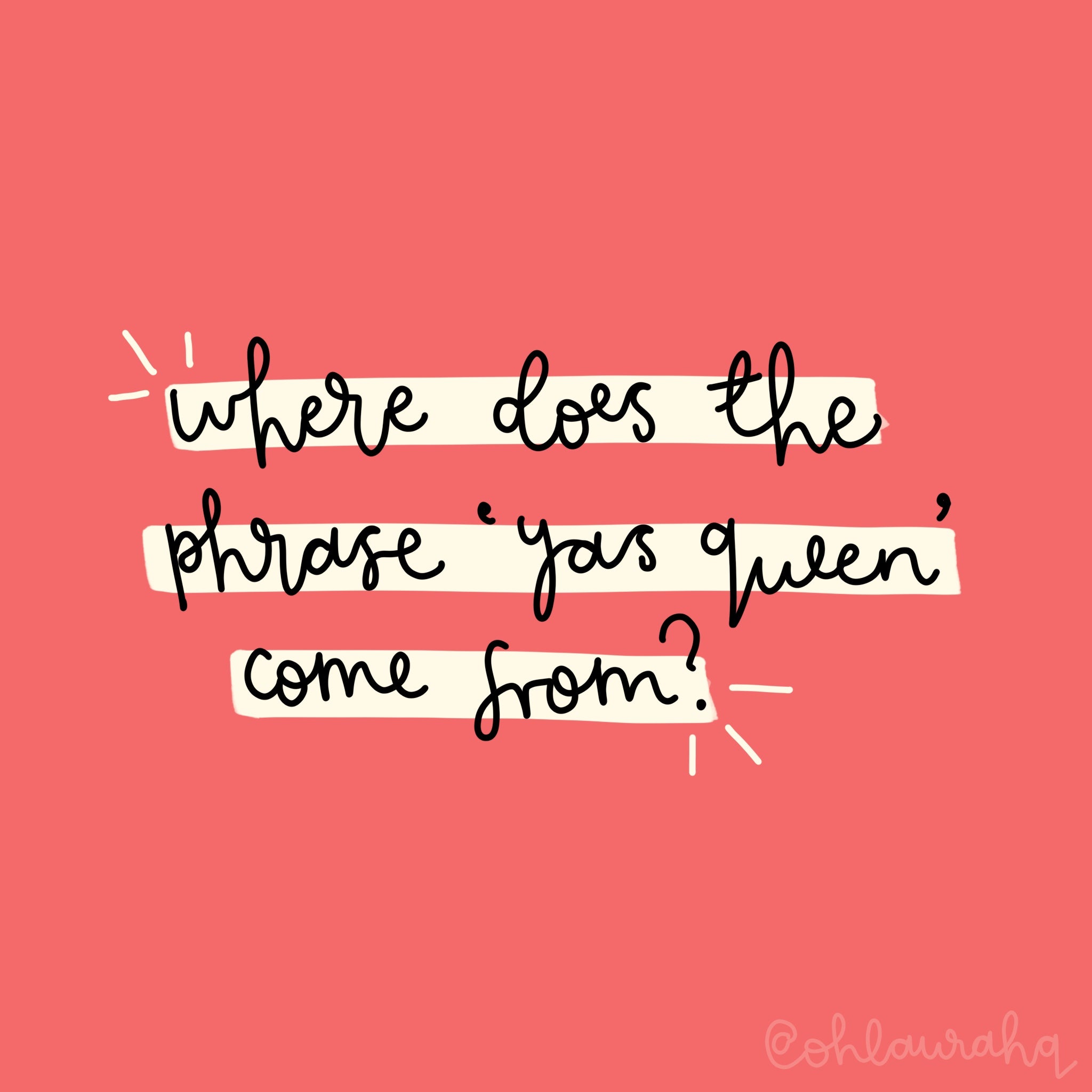For a few years now, I've used the phrase 'yasss queen' on my products. It's the one I've kept the longest, and it's constantly a best seller. Many times throughout the years I've considered whether this is something I should still be using, and I've never come to a definite conclusion.
On the one hand, this is not my phrase to use. It was created by the Black LGBTQIA+ community, and to take their language, popularise and profit from it, while they themselves are so hugely discriminated against is not ok. On the other hand, popularising and normalising terms from a marginalised community, while keeping the discussion around their origins at the centre and respecting, uplifting and celebrating the people who created them, feels important too. 
So I want to tell you about these people, how the terms came about and became popularised and how we can support and protect these communities.
The phrase 'yas queen' originated in the ballrooms of NYC. Ball culture was originated by the Black trans and queer community as a way to celebrate everything they were. It started in NYC but spread across the US, and the world, becoming immortalised in Madonna's 1990s song 'Vogue'. They would "walk" in categories to win trophies, and would be given scores based on how well their look fit the categories such as 'femme queen realness' , They would 'vogue' (before Madonna made it cool), striking poses to the beat of the music.
This is not unlike what you see on RuPaul's Drag Race today where the queens are given a category which they have to interpret, create a look and then walk in and be judged. In fact, a lot of today's popular language that we think comes from Drag Race and the modern LGBTQ+ community actually originated in the ballrooms and with the Black trans community. Phrases like 'beat' to mean makeup, 'shade' and 'tea', 'hunty', 'sickening', 'realness' and so many more all originated with the Black trans and queer community.
If you want to learn more about Ball Culture, 'Pose' on Netflix is an amazing tv show based around ball culture and the struggles of the Black LGBTQIA+ community in the late 1980s and early 1990s. I also recommend watching the documentaries 'Paris is Burning' and 'Disclosure'.

Black LGBTQ+ people were, and continue to be now, hugely marginalised and discriminated against. Their language is taken, popularised and profited from, while they are still killed at an alarmingly high rate, just for being themselves.
"In NCTE’s U.S. Transgender Survey, which included more than 28,000 respondents, nearly half (47%) of all Black respondents reported being denied equal treatment, verbally harassed, and/or physically attacked in the previous year because of being transgender. Nearly one in ten (9%) were physically attacked in the past year because of being transgender. Black transgender women (14%) were more likely to be physically attacked in the previous year because of being transgender, compared to Black non-binary people (8%) and transgender men (7%)." - Source
This cannot continue and it's up to us to support the community, to help remove discrimination and protect their lives, especially if we want to continue to have our lives enriched by the language and culture of this community. As Clara Amfo said on her Radio 1 show last year after the murder of George Floyd by police officers: You cannot enjoy the rhythm and ignore the blues
![]()
To help support Black trans and queer people, 25% of the sale of all of my 'Yasss Queen' products will been donated to the Black LGBTQIA Therapy Fund which offers therapy and support to those in need in the UK.


